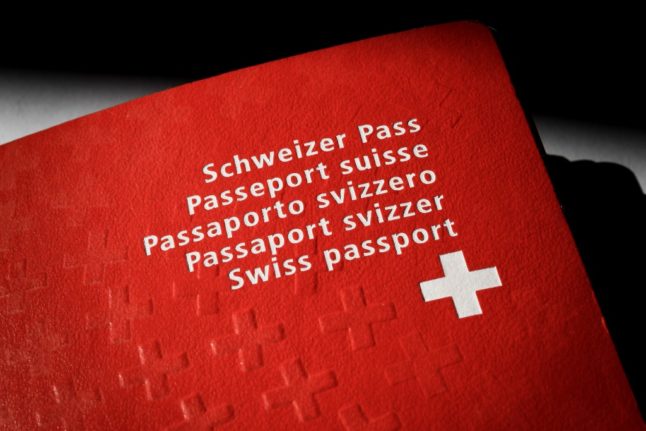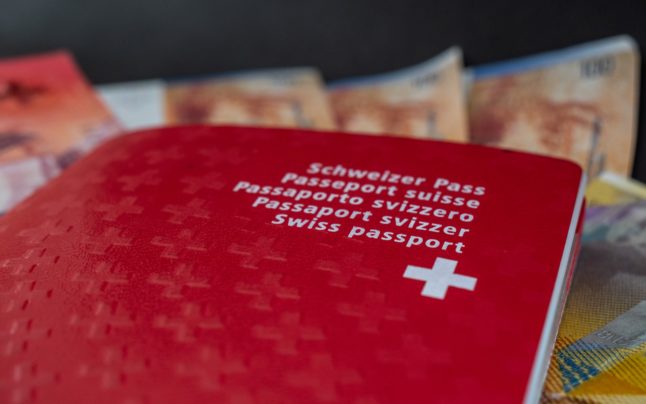From the length of residency to language and integration requirements, conditions for obtaining a Swiss passport are strict, especially for those applying under the ordinary naturalisation procedure rather than the simplified one.
The steps and requirements for both are outlined in this article:
How to apply for Swiss citizenship: An essential guide
In order to be eligible for naturalisation, you must fulfil a number of requirements, all of which are listed on the website of the State Secretariat for Migration (SEM).
While not depending on social assistance is not specifically mentioned, neither federal nor cantonal / communal naturalisation commissions will grant citizenship to foreigners who have been receiving public money, even if they meet all the other requirements.
Who is entitled to receive social aid in Switzerland?
This kind of financial aid is intended for residents who have insufficient income to support themselves and / or their families.
In Switzerland, this means wages below 2.259 Swiss francs a month for a single person, or 3.990 Swiss francs for two adults and two children.
Many of the recipients are newly arrived and have no jobs or income of any kind.
Amounts of payments vary based on personal circumstances.
However, to be eligible for government help, applicants cannot have any assets of their own. If they have money in the bank, own property or vehicles, they will not qualify for public assistance until the assets are liquidated.
Why is this so?
One of the most important conditions for citizenship is to be successfully integrated.
SEM defines integration as “personal responsibility,” self-sufficiency, and participation in the country’s economy.
This means applicants should be working and earning money rather than relying on the government to support them.
READ ALSO: What does being ‘successfully integrated’ in Switzerland mean?
So if you are receiving welfare benefits, and have been within three years before seeking to be naturalised, you are not eligible to apply for Swiss citizenship.
However, if you have completely repaid the amount of social aid you received before the naturalisation application, then your chances of obtaining Swiss citizenship are much greater.
Receiving assistance also doesn’t bode well for your work permit.
The Foreign Nationals and Integration Act (FNIA) provides for the possibility of downgrading or revoking the permit of a person receiving social assistance.
This means authorities may decide to downgrade permanent residence permits to temporary ones, or withdraw them altogether, if someone has applied for benefits.
The revision of FNIA in 2019 extended the consequences of social assistance even to C permit holders, meaning that sweeping rights and protections normally conferred by this particular permit in relation to long-term permanent residence could be nullified.
This would impact not only third country nationals, but also EU/EFTA citizens living in Switzerland.
READ ALSO: How applying for social benefits could see your Swiss work permit cancelled
But there is more.
You can also see your bid for citizenship denied if you have debts or, worse yet, there are debt collection proceedings against you.
In its handbook on naturalisation, SEM notes that “compliance with Swiss law is measured in particular by an exemplary financial reputation”.
SEM goes on to list non-payment of taxes, health insurance premiums, fines, rents, or accumulation of debt as valid reasons for denying citizenship.
READ ALSO: How personal debt could stop you from becoming Swiss
What about unemployment benefits?
There is nothing in the FNIA law referring specifically to unemployment, so no, this would not be held against you in the naturalisation process.
If you have been legally working in Switzerland for at least 12 months in the last two years and contributing to the social insurance scheme, then you are entitled to receive unemployment benefits.
Since you ‘earned’ these benefits fair and square, they can’t be considered as free handouts, and therefore would not hinder your citizenship application.
READ ALSO: Which foreign workers are entitled to unemployment benefits in Switzerland?



 Please whitelist us to continue reading.
Please whitelist us to continue reading.
Member comments